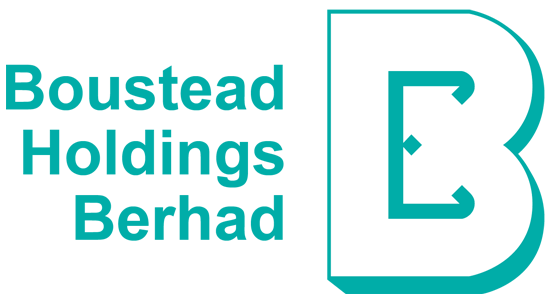UAC Berhad conducted a Life Cycle Assessment (LCA) study in 2019 to assess the environmental impact of our Fibre Cement Board product in line with ISO 14025 Environmental Labels and Declaration and EN 15804 Sustainability of construction works – Environmental Product Declaration. The Cradleto-Gate assessment covered the entire production stage from the supply of raw material to the transportation and manufacturing process.
Sustainable Products and Services
Sustainable Products & Services
- Sustainability-certified palm oil products
Activities in FY2020
- Six palm oil mills and 21 estates are Roundtable on Sustainable Palm Oil (RSPO) certified.
- All our mills and estates are MSPO certified.
Sustainable Products & Services
- Inclusive and sustainable residential and commercial developments
Activities in FY2020
- Sustainability features incorporated into new launches include transit-oriented developments, energy efficient infrastructure, safe and accessible open spaces as well as easily accessible social and cultural amenities.
- UAC Berhad produced 22.8 million metres of sustainability-certified fibre cement boards.
Sustainable Products & Services
- Affordable healthcare products
- Halal healthcare products
- Vaccine
- Logistics and distribution of healthcare products to Government medical facilities across Malaysia and Indonesia
Activities in FY2020
- Promotes access to high quality healthcare products.
- Established Halal vaccine manufacturing facility at Puchong.
Sustainable Products & Services
- Provision of shipbuilding and maintenance, repair and overhaul (MRO) services to the Royal Malaysian Navy (RMN)
Activities in FY2020
- We are pleased to do our part to aid in RMN’s efforts in enforcing the law, both nationally and internationally, through our 12 MRO projects with RMN during the year.
Sustainable Products & Services
- Educational and research services by The University of Nottingham in Malaysia Sdn Bhd (UNiM)
- Affordable, cleaner and more efficient fuel
Activities in FY2020
- Involved in the provision of quality tertiary education, including courses pertaining to sustainability, to 4,659 students from 75 countries in 2020 alone.
- The University collaborates with various entities on sustainability-oriented research.
- 390 BHPetrol service stations across the nation offer increasingly cleanerand more efficient fuel.
We investigated the following processes as part of the LCA study:
- Manufacturing of preliminary products including cement, sand, pulp, alumina, silica fumes and red pigment.
- Transportation of raw materials and preliminary products to the plant.
- Manufacturing process employed at the plant in terms of energy utilised, emissions incurred, manufacture of auxiliaries and disposal of residual materials.
- Manufacturing of packaging materials.
We undertook an assessment of the following parameters as part of our study:
- Environmental impact of our fibre cement board products, comprising its contribution to global warming, impact on the depletion of the stratospheric ozone layer, eutrophication potential as well as acidification potential, amongst others.
- Resource utilised in terms of total renewable and non-renewable sources.
- Output flows and waste categories, be it hazardous, non-hazardous or radioactive waste.
As a result of this study, we established that the upstream cement production process was the key contributor in terms of environmental impact, due to the energy and resource intensive nature of the processes involved.
Manufacturing activities within the UAC Berhad plant itself recorded a relatively lower environmental impact.
This study was an important undertaking for the Group as it allowed us to identify our environmental footprint. Consequently, we undertook the following initiatives to reduce our environmental impact:
- Continuous monitoring of the effectiveness of our waste management system.
- Sourcing of greener raw materials such as pulp from suppliers that have a solid reforestation programme in place.
- Conception of low carbon footprint products by substituting the materials originally utilised with that of greener raw materials that fulfil the expected product standards.
- Minimisation of wastage.
- Utilisation of recyclable green materials to further reduce waste headed for landfills.
Through this study, we found that for every 1 tonne of UAC Fibre Cement Board:
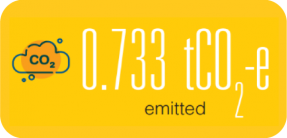
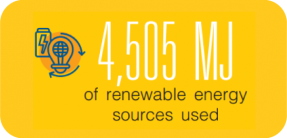
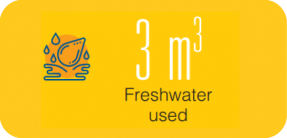
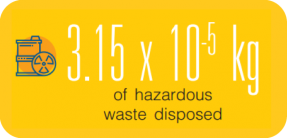
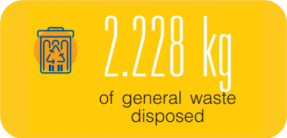
Our Pharmaceutical arm, Pharmaniaga Berhad, is committed to providing affordable and high-quality medicines as well as services to patients thereby allowing them to have better access to healthcare that enhances lives in various therapeutic segments through their manufacturing, logistics and distribution activities.
To increase accessibility to affordable healthcare for Malaysians, they initiated pilot projects with retail petroleum companies. This has enabled them to provide OTC products at petrol stations, offering greater convenience to consumers.
Pharmaniaga has also collaborated with reputable international pharmaceutical company and a nonprofit research and development organisation, to enable affordable access to safe and effective treatments for Hepatitis C.
Product Responsibility
Pharmaniaga’s safety standards are aligned to the relevant laws, regulations and best practices applied within the industry. Safety, quality and efficacy considerations are embedded in key areas such as
research and development, procurement, manufacturing, distribution, transportation and marketing.
Product responsibility includes accountability in terms of product information provided to customers which should be consistent with product characteristics approved and confirmed by regulatory authorities. Malaysian Pharmacovigilance Guidelines outlines requirements for submission of information pertaining to product safety to the Drug Control Authority.
Pharmacovigilance is fundamental to the pharmaceutical sector, providing assurance on product safety which is of utmost priority for the Group. To further strengthen the product safety measures, Pharmaniaga has created a pharmacovigilance unit to oversee and manage all relevant areas, from addressing complaints and queries to conducting reviews and training workshops.
They conducted training and awareness programmes for their employees to build knowledge on pharmacovigilance. These programmes are important as they:
- Identify previously unrecognised adverse reactions or changes in the patterns of adverse effects;
- Prevent harm from adverse reactions arising from the use of medicinal products;
- Assess risks and benefits of products in order to determine necessary actions to improve their safe use; and
- Promote the safe and effective use of medicinal products, in particular through providing timely information about the safety of medicinal products to patients, healthcare professionals and the public as well as to monitor impact of any action taken.
Halal Healthcare Products
Pharmaniaga has also participated in various programmes, collaborative projects and knowledge sharing in conferences at the national level to elevate Halal product development in the region. For Indonesia operations, PT Eritta has embarked on the preparation of Halal Assurance System 2300 Certification, in accordance to the Lembaga Pengkajian Pangan, Obat-obatan dan Komestika Majelis Ulama Indonesia, the regulatory authority of Halal certification. To support this, Pharmaniaga have sent 10 of its employees to attend training and obtain certification to equip them with relevant knowledge and skills for the Halal certification for its selected products.

